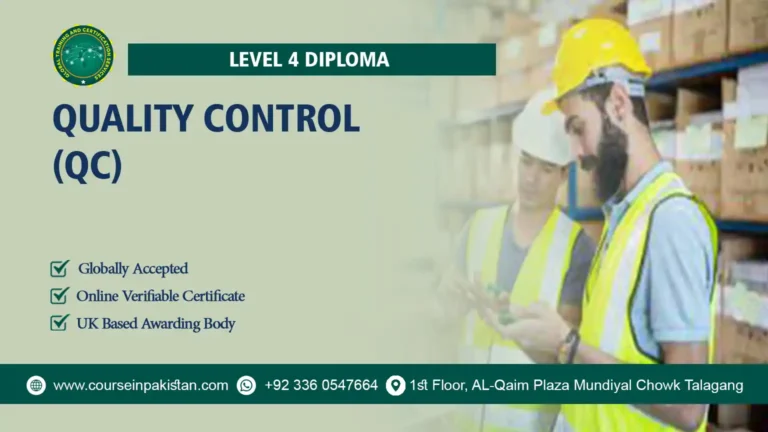
Level 1 Diploma in Civil Technology
“Empowering Futures through Excellence in Quality Control – Level 1”
Are you ready to take your career to new heights? Dreaming of a future filled with exciting opportunities, impressive job titles, and a steady climb up the corporate ladder? Look no further – the Level 1 Diploma in Civil Technologyis your passport to success!
Why Choose Level 1 Diploma in Civil Technology
- Foundation for a Promising Career: The Level 1 Diploma in Civil Technology serves as a strong foundation for a promising career in the field of civil engineering and technology. It provides you with fundamental knowledge and practical skills that are highly sought after in the job market.
- Industry-Relevant Curriculum: This diploma program is designed to align with the latest industry standards and trends. You will learn about the most up-to-date technologies, materials, and methods used in the civil engineering and construction sectors.
- Hands-On Experience: Practical experience is invaluable in the field of civil technology. This program offers hands-on training and projects that allow you to apply your knowledge in real-world situations. You will gain confidence in your abilities through practical learning.
- Versatility: The skills acquired during the Level 1 Diploma in Civil Technology are versatile and can be applied in various sectors of the construction industry. You can choose to work on infrastructure projects, residential construction, commercial buildings, or even pursue further studies in civil engineering.
- Career Opportunities: Graduates of this program are in high demand. With a Level 1 Diploma in Civil Technology, you can explore career opportunities as a civil engineering technician, construction manager, site inspector, or surveying technician, among others.
Your Future Awaits – Enroll Today!
The Level 1 Diploma in Civil Technology is a foundational educational program designed to provide individuals with a fundamental understanding of civil engineering technology and related concepts. This diploma program serves as an introduction to the field of civil technology and is typically offered at vocational schools, community colleges, or technical institutes.
The Level 1 Diploma in Civil Technology offers numerous benefits to individuals interested in pursuing a career in the field of civil engineering and construction. Here are some of the key advantages:
- Introduction to the Field: This diploma serves as an excellent introduction to the world of civil technology and construction. It provides foundational knowledge and skills that are essential for success in the industry.
- Hands-On Learning: Many Level 1 programs include hands-on training and practical experience. This allows students to apply what they’ve learned in real-world scenarios, helping them develop valuable skills and confidence.
- Career Advancement: Completing a Level 1 Diploma can be the first step towards a rewarding career in civil engineering or construction. It can open doors to entry-level positions and serve as a pathway to higher levels of education and certifications.
- Job Opportunities: The construction industry is always in need of skilled workers. With a Level 1 Diploma, graduates can access a wide range of job opportunities, including roles as construction laborers, assistant surveyors, or engineering technicians.
- Versatility: The skills acquired through this diploma are versatile and can be applied in various sectors of the construction industry, including residential, commercial, and infrastructure projects.
- Professional Development: Level 1 programs often emphasize professionalism and workplace ethics, which are critical attributes for success in any career. Students learn how to work effectively in teams and communicate with colleagues and supervisors.
- Safety Training: Safety is paramount in the construction industry. Students are typically trained in safety protocols and practices, which can lead to a safer work environment and reduce accidents on job sites.
- Preparation for Advanced Study: For those interested in pursuing further education in civil engineering or related fields, a Level 1 Diploma can be a solid foundation. It provides the necessary prerequisites and knowledge base for more advanced coursework.
- Networking Opportunities: Students have the chance to connect with instructors, classmates, and industry professionals during their studies. These connections can be valuable for finding job opportunities and building a professional network.
- Personal Growth: Beyond technical skills, the Level 1 Diploma can also contribute to personal growth. It can boost self-confidence, problem-solving abilities, and decision-making skills, which are valuable in all aspects of life.
- Contribution to Infrastructure: Civil technology professionals play a crucial role in building and maintaining the infrastructure that society relies on, such as roads, bridges, and buildings. Graduates can take pride in contributing to their communities and the economy
- Introduction to Civil Technology:
- Describe the fundamental concepts and principles of civil technology.
- Identify the various sub-disciplines within civil technology.
- Basic Mathematics and Geometry:
- Apply basic mathematical concepts to solve civil engineering problems.
- Calculate area, volume, and angles for common civil engineering applications.
- Construction Materials:
- Recognize and categorize different construction materials.
- Understand the properties and uses of various construction materials.
- Blueprint Reading:
- Interpret and analyze civil engineering drawings and blueprints.
- Identify key components and symbols used in construction plans.
- Safety Procedures:
- Demonstrate knowledge of safety protocols and procedures in construction sites.
- Understand the importance of personal protective equipment (PPE).
- Surveying Basics:
- Explain the principles of surveying and its importance in civil engineering.
- Use basic surveying instruments to measure distances and angles accurately.
- Construction Tools and Equipment:
- Identify and describe common construction tools and equipment.
- Demonstrate the safe and proper use of construction tools.
- Introduction to AutoCAD or Drafting Software:
- Familiarize with basic AutoCAD or drafting software functions.
- Create simple 2D drawings and designs.
- Communication Skills:
- Develop effective verbal and written communication skills for collaboration in a civil engineering team.
- Problem-Solving and Critical Thinking:
- Apply problem-solving techniques to address common issues in civil engineering projects.
- Demonstrate critical thinking in analyzing and proposing solutions.
- Environmental Awareness:
- Understand the environmental impact of civil engineering projects.
- Identify sustainable practices in civil technology.
- Project Documentation:
- Create basic project documentation, including reports and records.
- Maintain accurate project logs.
- Workplace Ethics and Professionalism:
- Demonstrate professionalism, teamwork, and ethics in the workplace.
- Adhere to industry standards and codes of conduct.
- Quality Control and Assurance:
- Implement quality control measures to ensure construction project quality.
- Perform basic quality inspections and tests.
- Health and Safety Regulations:
- Comply with health and safety regulations relevant to civil technology.
- Identify potential hazards and mitigate risks.
- Basic Computer Skills:
- Use basic computer applications and software relevant to civil technology.
- Create and manage electronic documents.
The Level 1 Diploma in Civil Technology is a foundational program that serves as a critical stepping stone for individuals aspiring to build a career in the field of civil engineering and technology. This diploma offers a comprehensive introduction to the principles, concepts, and skills required in this dynamic and vital industry. Here are several compelling reasons why pursuing a Level 1 Diploma in Civil Technology is a valuable choice:
- Fundamental Knowledge: This program provides students with a solid foundation in the fundamental concepts of civil technology. It covers essential topics such as construction materials, surveying, drafting, and basic engineering principles. This knowledge serves as the cornerstone for further education and career development in the field.
- Practical Skills: The Level 1 Diploma focuses on practical, hands-on skills that are immediately applicable in the construction and civil engineering sectors. Students gain experience in using industry-standard tools and software, enhancing their employability and readiness for entry-level positions.
- Career Opportunities: Completing this diploma opens doors to a variety of entry-level positions within the civil engineering and construction industries. Graduates can work as construction assistants, surveying technicians, or drafting technicians, providing valuable support to professionals in the field.
- Pathway to Higher Education: Many students use the Level 1 Diploma as a stepping stone to higher education. It provides a solid basis for further studies in civil engineering, architecture, or related fields. With additional education, graduates can pursue more advanced roles and opportunities.
- Industry Relevance: The curriculum is designed to align with current industry standards and practices. This ensures that students are equipped with the most up-to-date knowledge and skills needed to excel in their careers.
- Hands-on Experience: The program often includes practical projects and real-world simulations, allowing students to apply their knowledge in a controlled environment. This experiential learning approach helps bridge the gap between theory and practice.
- Problem-Solving Abilities: Civil technology professionals are often tasked with addressing complex challenges in construction and infrastructure development. The Level 1 Diploma cultivates problem-solving skills, critical thinking, and adaptability, which are highly valued in the industry.
- Teamwork and Communication: Effective collaboration and communication are essential in the civil engineering field. Through group projects and presentations, students develop teamwork and communication skills, preparing them for the collaborative nature of the industry.
- Safety Awareness: Safety is paramount in the construction sector. This diploma program emphasizes safety protocols and practices, ensuring that graduates enter the workforce with a strong commitment to maintaining a safe working environment.
- Job Market Demand: The demand for skilled civil technology professionals remains steady, driven by ongoing infrastructure projects and urban development. Graduates of this program are well-positioned to secure stable employment opportunities.
Course Contents of Level 1 Diploma in Civil Technology
- Introduction to Civil Engineering Technology
- Overview of Civil Engineering and Its Importance
- Historical Perspective of Civil Engineering
- Key Concepts and Branches within Civil Engineering
- Role of Civil Engineering in Modern Society
- Emerging Trends and Technologies in Civil Engineering
- Engineering Graphics and CAD
- Principles of Engineering Graphics
- Manual Drafting Techniques
- Introduction to Computer-Aided Design (CAD) Software
- 2D CAD Drawing and Drafting
- 3D Modeling and Visualization
- CAD Standards and Best Practices
- Surveying Techniques
- Introduction to Land Surveying
- Surveying Instruments and Equipment
- Basic Surveying Measurements and Units
- Topographic Surveys and Site Mapping
- Traversing and Leveling Techniques
- Surveying Data Analysis and Presentation
- Materials and Construction Technology
- Properties of Construction Materials (e.g., Concrete, Steel, Wood)
- Construction Methods and Techniques
- Foundation Systems and Soil Mechanics
- Structural Components and Building Systems
- Construction Quality Control and Inspection
- Construction Management Principles
- Project Management in Construction
- Cost Estimation and Budgeting
- Construction Scheduling and Time Management
- Risk Management in Construction Projects
- Legal and Ethical Issues in Construction Management
The Level 1 Diploma in Civil Technology is designed for individuals who aspire to pursue a career in civil engineering and related industries. This course is ideal for:
- High School Graduates: Recent high school graduates who have a strong interest in engineering and want to kickstart their journey into the field of civil engineering technology.
- Career Changers: Individuals seeking a career change or transition into the civil engineering and construction sector, even if they do not have prior experience in the field.
- Technically Inclined Individuals: Students who possess a natural aptitude for technical subjects and are eager to apply their skills in real-world engineering projects.
- Aspiring Engineering Technicians: Those who aim to become civil engineering technicians, CAD technicians, surveying technicians, or pursue entry-level positions in the construction and civil engineering industries.
- Future Engineering Professionals: Individuals who plan to continue their education and pursue higher-level degrees or certifications in civil engineering or related fields.
- Career Advancement Seekers: Professionals already working in the industry who wish to enhance their knowledge and skills to advance in their current roles or explore new career opportunities.
- Entrepreneurs and Business Owners: Individuals interested in launching their own construction or engineering-related businesses and want to build a strong foundational understanding of the field.
- Individuals Passionate About Infrastructure: Enthusiasts who have a deep interest in infrastructure development and want to actively contribute to building and maintaining the world’s infrastructure.
Entry Requirements for the Level 1 Diploma in Civil Technology Course
To ensure that participants can effectively engage with and benefit from the Level 1 Diploma in Civil Technology course, we have established the following entry requirements:
- Educational Background: Typically, participants should have a high school diploma or its equivalent (such as a GED). Some programs may require a minimum level of education, such as completion of secondary education, to ensure participants have basic academic skills.
- Language Proficiency: Proficiency in the language of instruction (usually English) is essential to comprehend complex course materials, actively participate in discussions, and complete written assignments.
- Age Requirement: Participants must be at least 18 years of age to enroll in this course.
- Industry Experience: While not always required, some programs may prefer or recommend that participants have some prior industry experience related to the field they intend to study. This can provide valuable context for understanding quality control principles.
To take admission in Based Computer course, Please visit our institute
Global Training and Certification Services
1st Floor, Al-Qaim Plaza, Mundiyal Chowk, Talagang
For any query or detailed information please call us on
+92-336-054 7664
For WhatsApp Please







